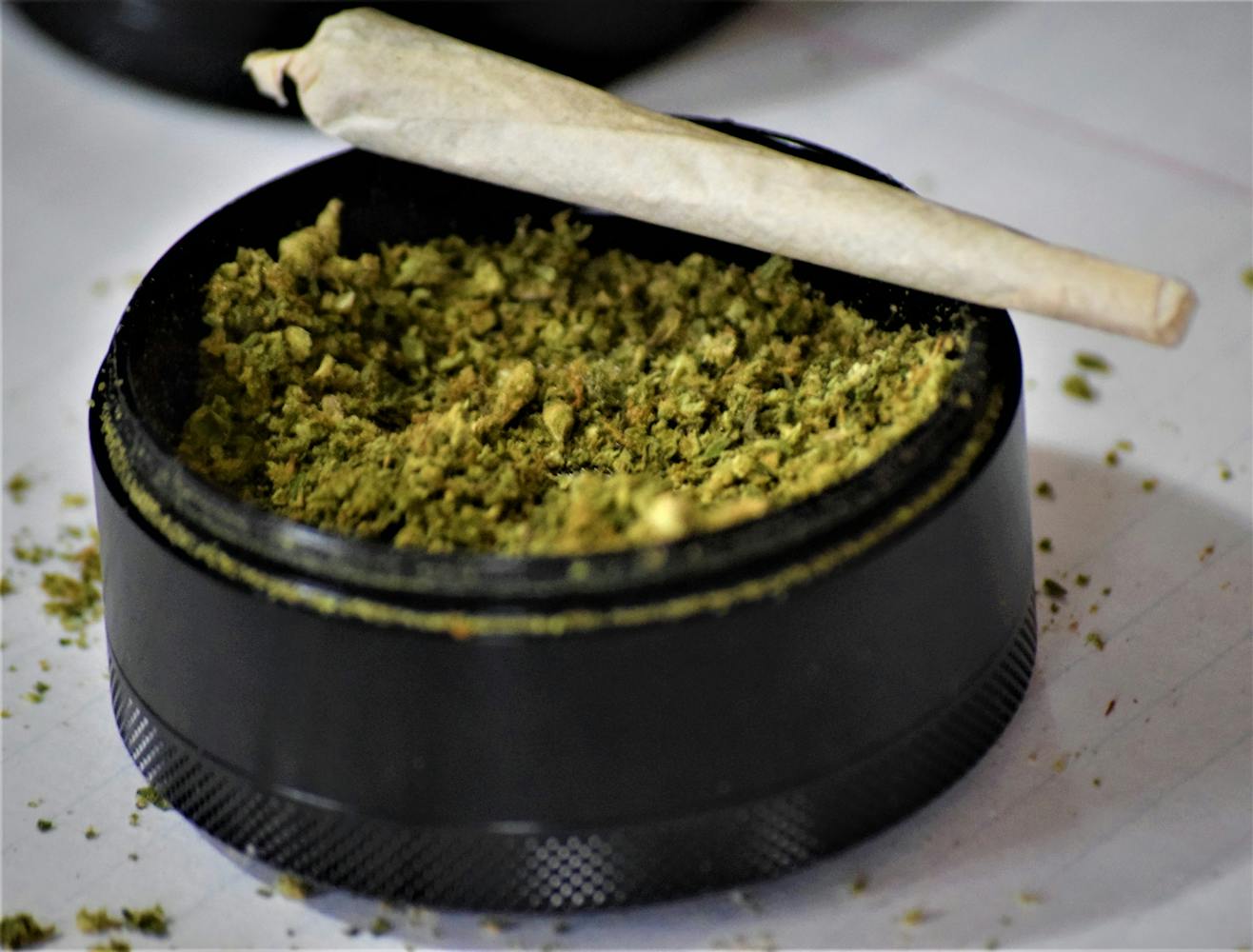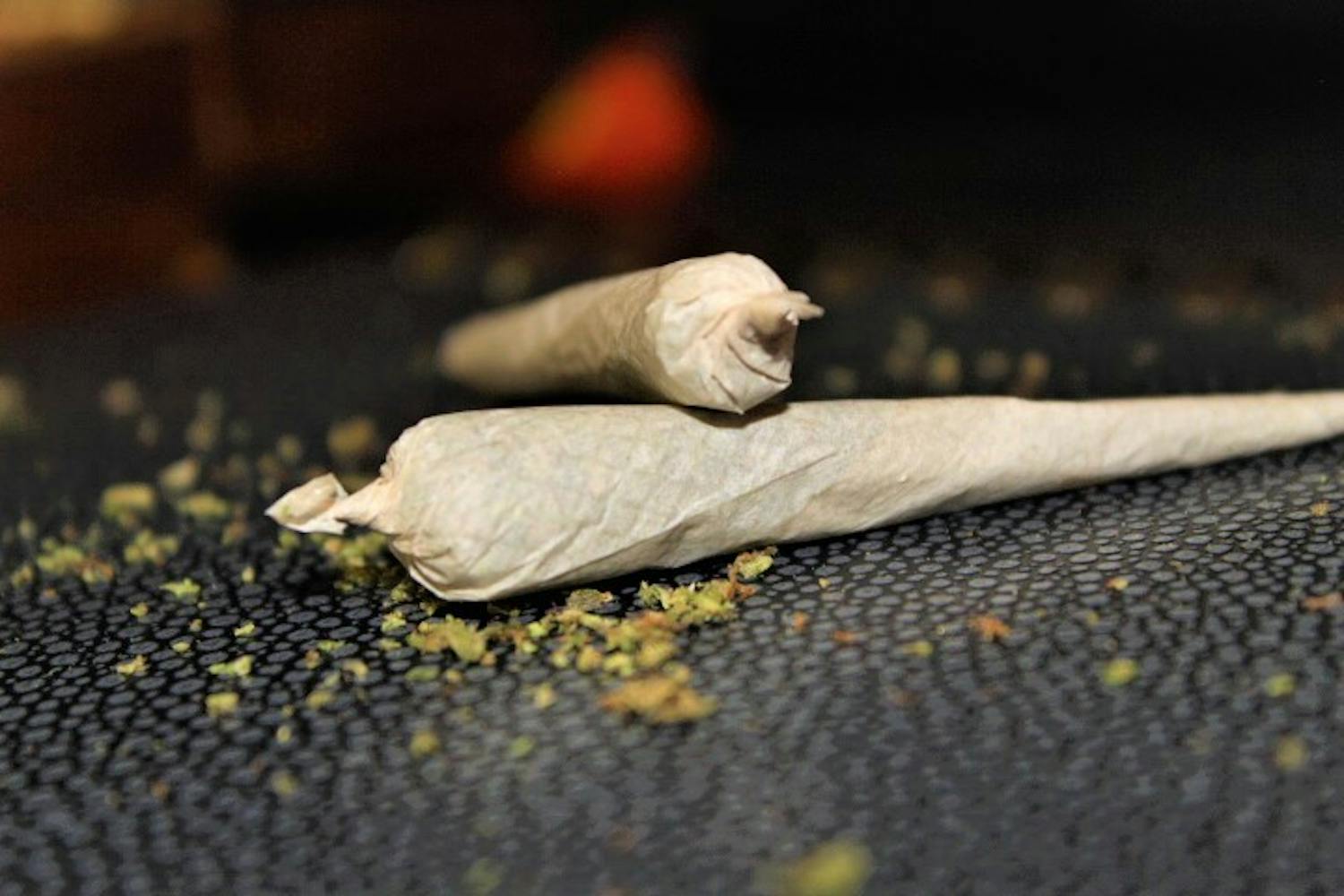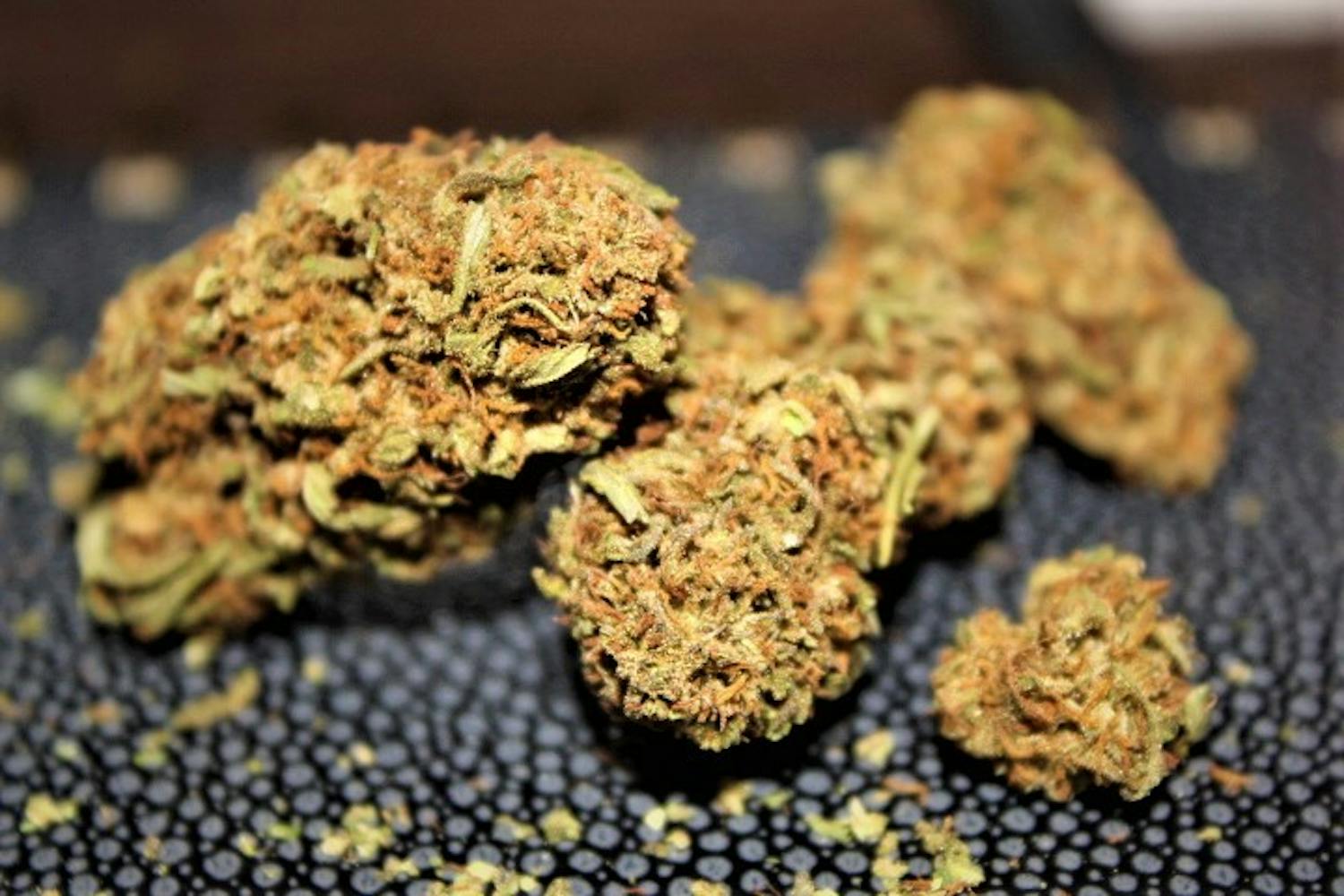Since cannabis was legalized recreationally last summer in New Mexico, University of New Mexico students have been able to legally partake in the drug, so long as they’re over 21. After recreational sales started on Friday, April 1, many students have said this chain of legalization will have positive impacts on the local community and its members despite the misinformation that America’s war on drugs has produced.
Cannabis can be used both medically and recreationally, according to graduate music student Sam Lutz, and the only drug he uses is cannabis. It helps him calm down, as it does for graduate music students Hunter Wheatcraft and Daniel Yim as well.
“I’m a pretty anxious person and so it does generally calm my anxiety down and helps me relax,” Wheatcraft said.
In the U.S., 18 states have legalized cannabis recreationally so far. Lutz said this legalization will boost New Mexico’s economy.
“I just think this is a really positive step economically for New Mexico as a state (that is) in a much lower income bracket. The way this is going to stimulate the economy, I think, is going to be incredible,” Lutz said.
As long as there’s some control over the market and how much people can buy, Wheatcraft said this is a great thing that “more states are getting into.” Lutz said that although legal recreational cannabis will likely be more expensive than “channels people were taking previously,” it’s worth it for the regulation.
“The products people are consuming are going to be safer. People are going to be purchasing less street weed that could be laced with things. I think this is a really good step because people have been smoking weed forever; now, it’s just going to be safer,” Lutz said.
However, cannabis is still illegal on a federal level. This disproportionately affects marginalized communities, according to Lutz, as do other federally criminalized drugs.
“I’m personally in the camp that all drugs should be decriminalized because of the way that criminalization has negatively affected communities of color and people from lower economic classes, but particularly I think that it’s kind of like the modern-day equivalent of Prohibition. It’s like, ‘Oh, this is a bad thing’ and so the government stands against it when really they have no reason to. It’s just kind of tradition,” Lutz said.
A lot of the stigmatization of weed stems from the war on drugs, Wheatcraft and Lutz said. The war on drugs was officially declared by former President Richard Nixon in 1971 to reduce illegal drug use, distribution and trade.
Yim referenced an interview with former Nixon domestic policy chief John Ehrlichman published in Harper’s Magazine in 2016 where he said the goal of the war on drugs was to get “the public to associate the hippies with marijuana and Blacks with heroin,” and then criminalize those drugs, therefore negatively impacting the communities.
“I think a lot of it just has to do with how America has always been a fundamentally racist country,” Yim said.
Get content from The Daily Lobo delivered to your inbox
The war on drugs was greatly expanded by former President Ronald Reagan in 1981 when criminal punishment was favored over treatment, and a massive wave of incarcerations was enacted. The total prison population almost doubled under Reagan’s presidency.
“As a society, we like to choose certain things to demonize, and cannabis, because of the war on drugs and the whole D.A.R.E. project and stuff, it very much was kind of personified as this big, evil thing … and that’s just kind of had far-reaching impacts because we were all raised under that war on drugs umbrella,” Lutz said.
This stigmatization has continued because of right-wing propaganda, according to Yim. He said there is a lack of action on a political level to legalize cannabis federally.
“Congressional Democrats are wimps who are unwilling to do anything, and right now the rumor is they're waiting until 4/20 to legalize. I’m like, there’s no reason to wait. It’s a purely symbolic date. We know it’s going to happen … It just needs to happen,” Yim said.
People are often misinformed about cannabis and equate it with drugs with more severe effects, like heroin and meth, or don’t understand what it does, according to Wheaton.
“I never get those visual highs that you see in ’70s movies and stuff, and I think a lot of the people who are against marijuana usage, that’s what they think of with it, is they’re thinking of people who are incapacitated and they’re seeing colors and all, and some people do experience that I’m sure, but I know certainly that’s not what I experience and most of my friends would probably say the same,” Wheatcraft said.
Recreational cannabis legalization and sales will benefit New Mexico overall, according to Lutz.
“It’s something that's been a long time coming and it’s nice that it’s finally here,” Lutz said.
Megan Gleason is the Editor-in-Chief of the Daily Lobo. She can be contacted at editorinchief@dailylobo.com or on Twitter @fabflutist2716








